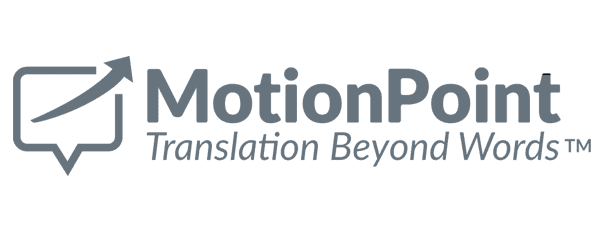




Most marketing and sales leaders know that by 2020, the buying power of U.S. Hispanics is expected to reach $1.7 trillion. But they often don’t know that many Hispanics prefer to consume online content in Spanish, not English.
Organizations can seize this thriving growth opportunity by leveraging digital marketing strategies and websites that cater to Hispanics’ online research and buying preferences.
In an ongoing series of articles published at MediaPost, MotionPoint EVP Craig Witt shares timely marketing insights and offers practical strategies that companies can start executing now to tap into this growing market segment. Here is a digest of his recent posts:
When marketing to U.S. Hispanic business owners online, it’s wise to use them in Spanish—often their preferred language. But that doesn’t necessarily mean a mix of English and Spanish, better known as Spanglish. In fact, in the professional—sometimes conservative—world of B2B, the casual feel of Spanglish can be a misstep. Read more of Witt’s insights to understand how Hispanic business owners view Spanish, English, and Spanglish … and discover a few key pitfalls to avoid when marketing to them online.
With the U.S. Hispanic population growing, companies are debating how to serve this vital segment of their market. Should they treat Hispanics as a separate, distinct population, or consider them part of the core U.S. population? And should marketing content be in Spanish, English, or a mix of both? In this article, Witt examines key data about the market, and offers practical insights to help companies make sound decisions on their U.S. Hispanic marketing strategy.
Companies targeting U.S. Hispanics customers should go beyond the well-tread advice of being “culturally relevant,” Witt writes. Instead, companies should thoughtfully examine their U.S. Hispanic marketing strategies in four key areas:
Discover more about these insights in Witt’s article.
Often, companies selling to Spanish-language customers deploy a localized strategy that incorporates market-centric events and holidays like Cinco de Mayo and quinceñeras. But that approach can backfire when the target market is U.S. Hispanics. In this article, Witt shares insights to explain why this is the case … and how to pivot your marketing strategy to incorporate this market segment’s cultural values all year round.
U.S. Hispanics spend about $10 billion on health, wellness, prescription drugs and over-the-counter products. A thoughtful, targeted, Spanish-language approach to promoting healthcare services makes good business sense. Yet many Hispanics remain underserved by healthcare providers. In this column, Witt explains how healthcare companies can offer authentic, robust social media content, customer service, and nimble web services in Spanish to reach this growing market.
Back-to-School season is America’s second-biggest shopping season, every year. Studies show that U.S. Hispanics spend 10% more during this season than other market segments. Retailers can incorporate smart strategies such as Spanish-language back-to-school content to attract and retain U.S. Hispanic customers. Read Witt’s article to dig more into the background of this trend and how companies can capitalize on it.
With U.S. Hispanics spending an estimated $56 billion in leisure travel annually, companies that neglect using a Spanish-language marketing strategy to reach them may be leaving money on the table. In this travel-focused column, Witt offers ways for travel businesses to use social media, mobile marketing, localized on-site search technology and other digital strategies to successfully engage this growing U.S. population segment.